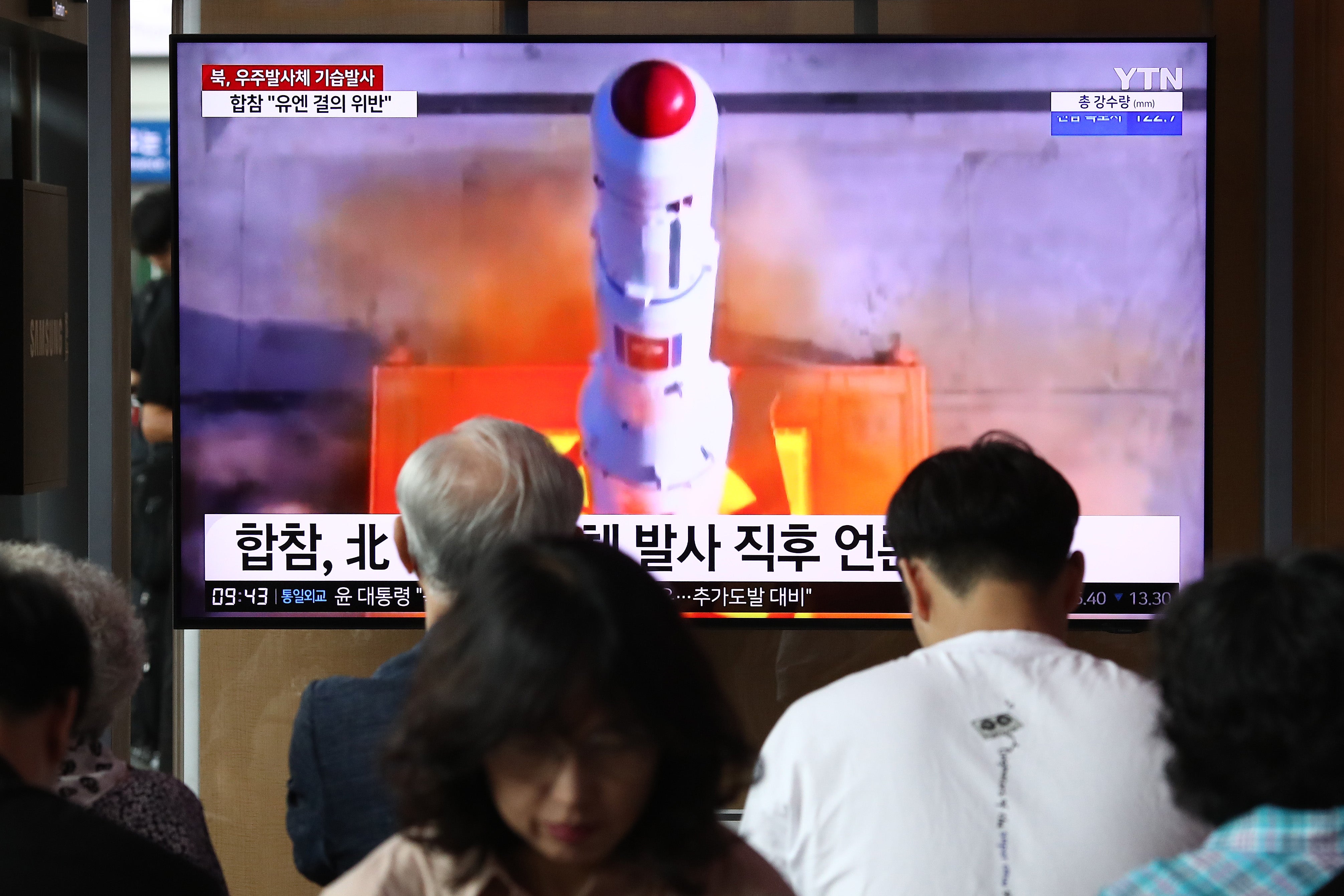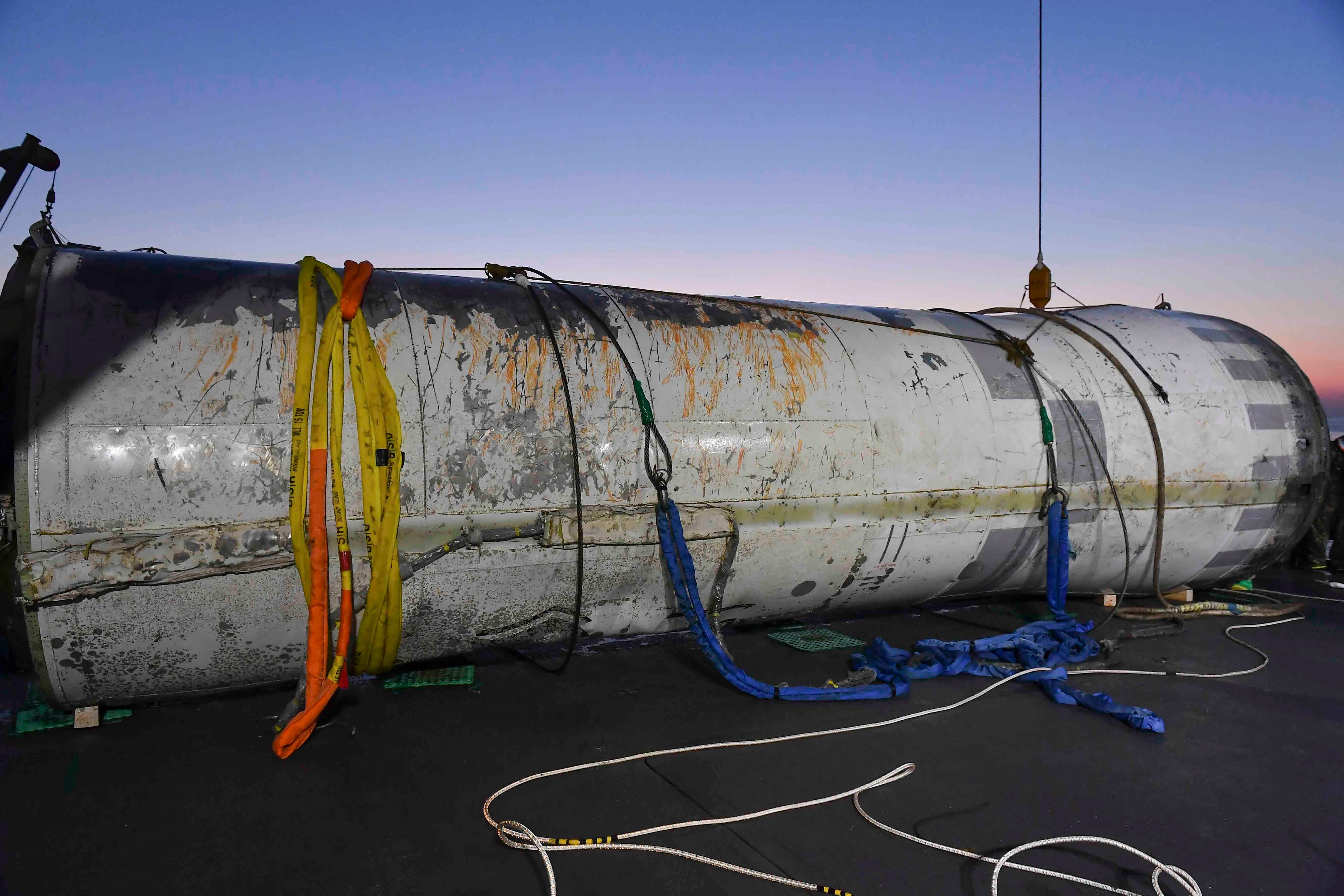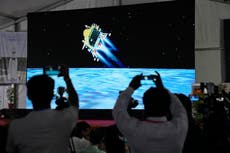Japan sounds missile alarms as North Korea fails at second attempt to launch spy satellite
Object failed to make orbit and crashed into the sea, neighbouring nations say, as South Korea tries to recover wreckage

Your support helps us to tell the story
From reproductive rights to climate change to Big Tech, The Independent is on the ground when the story is developing. Whether it's investigating the financials of Elon Musk's pro-Trump PAC or producing our latest documentary, 'The A Word', which shines a light on the American women fighting for reproductive rights, we know how important it is to parse out the facts from the messaging.
At such a critical moment in US history, we need reporters on the ground. Your donation allows us to keep sending journalists to speak to both sides of the story.
The Independent is trusted by Americans across the entire political spectrum. And unlike many other quality news outlets, we choose not to lock Americans out of our reporting and analysis with paywalls. We believe quality journalism should be available to everyone, paid for by those who can afford it.
Your support makes all the difference.North Korea said it made a second attempt to launch a spy satellite into orbit on Thursday, triggering alarm sirens in Japan as residents were ordered to take shelter.
Pyongyang’s attempt to launch a reconnaissance satellite again failed, North Korea state media and neighbouring nations said, with KCNA citing an error in the third stage of the rocket’s separation.
Emergency alerts and evacuation orders were issued early in the morning for residents of Japan’s southernmost island of Okinawa as the rocket flew overhead before coming down in the Pacific Ocean.
North Korea vowed to make a third attempt to get its satellite into space in October, the state-run KCNA reported.
Its first failed attempt came on 31 May this year, but the projectile and its payload crashed into the sea shortly after being launched. Pyongyang later said it was due to rocket failure.
On Thursday, the space agency of North Korea said it launched the reconnaissance satellite Malligyong using a new type of carrier rocket – Chollima-1.
“The flights of the first and second stages of the rocket were normal, but the launch failed due to an error in the emergency blasting system during the third-stage flight,” KCNA reported.
The rocket fell into the Yellow Sea after it broke into multiple parts, said Japan’s vice minister of defence Kimi Onoda.
South Korea’s military also said that it detected a rocket flying above international waters off the Korean Peninsula’s west coast.

South Korea’s Joint Chiefs of Staff said the launch violated UN Security Council resolutions that prohibit Pyongyang from using ballistic technologies.
South Korea has said it will salvage the parts of the second spy satellite to study it and later release an investigation report.
The South Korean military retrieved fragments following the first launch. The officials said in early July that the North Korean satellite wasn’t advanced enough to conduct military reconnaissance.
Japan said North Korea had informed it of the planned launch of the satellite in the direction of the Yellow Sea and East China Sea between 24 August to 31 August.
In preparation, the Japanese Coast Guard issued a navigational warning in the sea and ordered ships to remain on alert for objects falling into sea.
The placement of its spy satellite into the orbit is among an array of high-tech weapons systems that Kim Jong-un is seeking to development in the face of what he calls US-led hostility. Analysts say North Korea is continuing to develop its nuclear and other capabilities in order to pressure Western nations into talks on sanctions.
The Kim regime has said that it needs a “reliable reconnaissance information system” in order to keep “a grip on enemy military activities in real time”.
The launch was condemned by the US, Japan and South Korea, saying the North‘s repeated provocations will only result in strengthening a Washington-Tokyo-Seoul cooperation.
South Korea’s National Security Council (NSC) deplored North Korea for “driving its people to starvation and death by wasting the few resources they have on reckless provocations”.
Japan’s chief cabinet secretary Hirokazu Matsuno said Tokyo “strongly protests” North Korea’s spy satellite launch and “condemns it in the strongest terms”.
Adrienne Watson, a spokesperson for the White House’s National Security Council, said the US “strongly condemns” the launch, adding that it involved technologies directly related to the North‘s intercontinental ballistic missile program.
Ankit Panda, an expert with the Carnegie Endowment for International Peace, said that North Korea’s space agency, National Aerospace Development Administration, is under time pressure to succeed.
“[October] may be enough time for a new iteration. There’s no reason to think we won’t see another launch attempt in that time frame,” he said.



Join our commenting forum
Join thought-provoking conversations, follow other Independent readers and see their replies
Comments